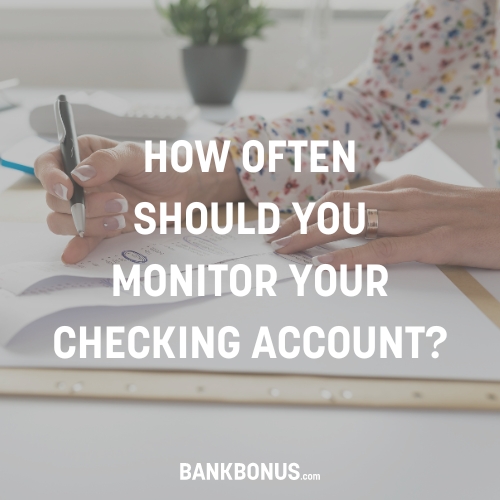There’s a lot of talk about credit scores these days, but what exactly does “credit score” even mean? – And what does your credit score start at if you don’t have any credit?
A good credit score can unlock prime-rate mortgages, premium credit cards, and even true love. Increasingly dating app users are listing good credit, along with eye color or education, as a primary requirement.
This article will take a look at where your credit score starts out and how you build credit (good or bad). Spoiler: even if you’ve never had a credit card, you could still have a score.
Where Does Your Credit Score Start?
A credit score ranges from 300 to 850 for most credit scoring models (TransUnion, Experian, Equifax, FICO), but you won’t start out with a first credit score of 0 or 300.
There is no typical starting credit score because no one starts out with a credit score; there will just be no data.
If you open a line of credit (i.e., car loan or credit card), your score will start out on the low end (less than 600) until you build up a positive repayment history.
What Credit Score Does an 18-year-old Start With?
Typically, an 18-year-old starts out with no credit and will have no credit score. This is because you usually need to be at least 18 years old to qualify for a credit card or other types of loans as you are entering into a contractual agreement.
If you don’t have any credit at age 18, you can start building credit.
It is possible to have good or bad credit at age 18, with the latter scenario, unfortunately, more common. There are some creditors who will give credit cards with extremely low limits to 16-year-olds and 17-year-olds.
What Is A Credit Score?
A credit score is a number that banks and lenders use to assess a person’s creditworthiness.
A higher credit score is needed to qualify for different lines of credit including mortgages, auto loans, credit cards, store charge cards, personal loans, and other types of credit accounts.
A good credit score can also save you money with better interest rates for loans or auto insurance or life insurance premiums. For housing, and some job applications, a good credit score is required.
Your credit score is calculated by three different major credit bureaus in the United States: TransUnion, Equifax, and Experian. Each bureau calculates your score based on data in your credit report.
What Is a FICO Score?
Your FICO score is a credit grading system created by the Fair Isaac Corporation (FICO). Lenders use your FICO scores, along with data from your credit file, to assess credit risk and decide if they are willing to extend credit to you.
As with the three major credit bureaus, your FICO score ranges from 300 to 850. A score below 600 is considered poor while a score of 700 or above is good. An excellent credit score is 800 or above.
How Are Credit Scores Calculated?
Your credit score is calculated based primarily on these data inputs on your credit report:
- Payment history
- Amount of debt
- Credit utilization ratio (amount of debt relative to available credit)
- Length of credit history
- New credit
- Credit mix
- Credit Inquiries
On-time payments are the most important component of your credit score and account for 35% of your FICO score.
What Is the Perfect Credit Score?
With the model used by FICO, TransUnion, Equifax, Experian, or VantageScore a perfect score is 850.
VantageScore is another scoring model that is similar to FICO. It’s newer than FICO and less commonly used, but is gaining momentum. AnnualCreditReport.com is one agency that uses VantageScore.
Frequently Asked Questions
Here are some common FAQs about your credit score.
Can you have a credit score without a credit card?
Yes! You can have a credit score without a credit card. A credit card (as a line of unsecured revolving credit) is just one type of credit you could have that reports to the credit bureaus.
Other credit products that would contribute to your score include an auto loan, student loans, any debts in collections (i.e. cellphone bill), or being an authorized user on a credit card.
Is no credit worse than bad credit?
No. No credit is better than bad credit, but both scenarios can have a similar negative impact. With no credit, you have no history of paying back loans. With bad credit, you may have a record of late payments or non-payment.
In either instance, it may make it harder or impossible to get a particular line of credit. You may be given lower credit limits, higher interest rates, require a cosigner, or be outright denied.
Even with no credit, you can commonly qualify for a card through credit card issuers like Capital One or Discover. These cards are commonly geared toward college students.
With damaged or poor credit, you may not be able to qualify for a credit card—even a secured credit card (with money paid upfront for a deposit).
How long does it take to establish credit if you have no credit?
According to Experian, it can take 3-6 months of credit activity to establish a credit score.
In terms of excellent credit (800+), sources vary but suggest you need at least 15-22 years of credit to reach the top tier. Why? You need to show that you have maintained—in good standing—a line of credit over many years.
How long does it take to repair bad credit?
Sources vary on how long it could take you to go from a bad credit score (300 to 579) to a good credit score (700+), but broadly speaking they suggest a range of 4 to 18 months. It depends on why you have poor credit (i.e., 2 months late on a credit card, or a car repossession) and any other different types of credit on your report that are in decent standing.
In some instances, it could take as long as 10 years. If there is a Chapter 7 bankruptcy on your report, it will remain on your credit history for 10 years.
How can I build my credit score if I have no credit history?
There are several things that you can do to build your credit history.
- Credit-builder loans help consumers with no credit or poor credit establish a positive record of on-time payments.
- Experian Boost gives you credit for bills that are typically not reported to the credit bureaus like your Internet service, Netflix, cell phone bill, and gym fees. You can build credit by paying these bills by their due date each month. While this Experian product is designed to boost your Experian score, participants report seeing their FICO credit score increase by an average of 13 points.
- Rent Karma will report your rent payments to the three major credit bureaus every month. Unlike Experian Boost which is free, there is a fee for participating in Rent Karma.
- Become an authorized user on the credit card of a creditworthy family member. (Their good payments reflect positively on your score, but keep in mind that their late payments will reflect negatively.)
- Get a credit card. Generally, if you have no credit, you can qualify for an unsecured credit card. This is a traditional line of revolving, unsecured credit where you borrow money each month—through making charges—and then pay it back. With no credit score, your maximum credit limit may only be $300 to $700. Over time though, your credit limit will go up as you make payments on time and build a history of responsible usage.
- Get a secured credit card. This is similar to a credit card, but here a security deposit is due upfront. It’s easier to qualify for a secured card than an unsecured card.
What credit score is needed to buy a house?
According to Rocket Mortgage, a credit score of 620 or higher is needed to buy a house. A 620 would be considered a fair credit score.
While this seems low — and it is lower than the national average credit score of 698 — the mortgage underwriting process is complex. Mortgage lenders look at a number of factors beyond your credit score, like property taxes, your income, other financial obligations, and your employment history (i.e., how long have you worked in your career field and if you have a stable record of working). Credit scores, inversely, do not take into account your income, employment record, or property taxes.
What credit score is needed to get an auto loan?
To get a conventional car loan, you’ll need a credit score of at least 620.
With a score of 580 to 619, you may be able to qualify for a subprime auto loan with higher interest rates (up to 21%).
Some creditors may even be willing to offer a deep subprime auto loan for scores 300 to 500.
How do credit limit and credit score relate?
Your credit limit is the maximum amount of money you can spend on your credit card. Your credit score, however, is the score or grade that banks and lenders use to assess your creditworthiness: how likely you are to repay a loan.
A higher credit limit can mean you have a high credit score, or vice versa because this shows lenders and credit card companies that you have a history of responsibly managing money and paying debt.
Typically, someone who has a high credit limit will have a high credit score but this is not always the case. To have a high score, you need to limit your credit utilization or the amount of debt you have relative to your available credit. If you have a $20,000 credit limit on your credit card, but the balance is regularly at $18,000 to $20,000, this could negatively impact your score even if you pay at least the minimum balance on time every month.
Creditors like to see your credit utilization at or below 30%. So for $20,000 in total available credit—on one or more credit cards—this would mean keeping your total balance no higher than $6,000.
What is your FICO score vs. Equifax, TransUnion, or Experian score?
Your FICO score is a single, three-digit number ranging from 300 to 850.
Your Equifax, TransUnion, or Experian score is a number ranging from 300 to 850 and a more detailed look into your credit history: all lines of reported credit, length of your credit history, payment history, and amounts paid toward total balances owed.
The three major credit bureaus get their information from banks, creditors, and other loan originators. They also get data from government agencies (i.e., bankruptcies, liens, garnishments) and debt collection agencies.
FICO gets its data from the three credit bureaus. Each bureau receives data at different times throughout the month, and at any given time, you can have 3 different scores; however, they are generally in a similar range.
Bottom Line
To wrap it up, there is no one single credit score that you start with. Either you have a credit history and an associated score (ranging from 300-850), or you have no credit history and no score.
As you start to apply for and use credit, it can take 3-6 months or longer to build a credit score. When starting out, your credit score will be on the lower side (under 700). As long as you don’t damage your credit (i.e., not pay bills), it’s even possible to reach an excellent score (800+) within a couple of years.
Having a good credit score or ultra-high credit score isn’t necessarily what you should focus on though. Concentrate on paying your bills on time, budgeting, not overspending, and maintaining good personal finance habits. If you can do that, you’ll keep your credit in good shape and not have to worry about what your three-digit grade is.





Comments are closed.
Comments are closed here.